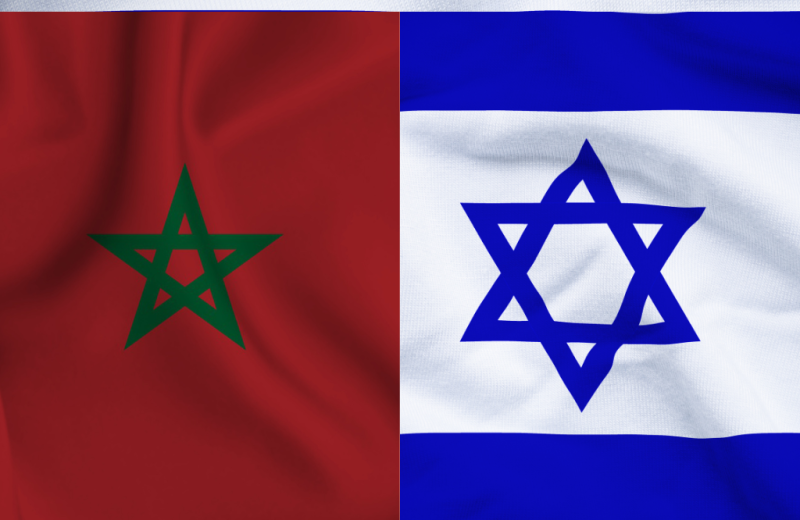 Op-eds
/ Israel and the Middle East
Op-eds
/ Israel and the Middle East
Israel and Morocco mark three years this week since renewing their relations, but the war between Israel and Hamas leaves no room for celebration. For the time being, bilateral cooperation on the governmental level is limited and low profile, focusing mainly on security matters. Despite high expectations from the numerous visits by Israeli ministers and officials to Morocco, these visits have not led to substantial cooperation beyond statements and memoranda of understanding.
The lack of focus and the inability to materialize the dozens of signed agreements is evident these days, emphasizing what has not yet been implemented. For instance, an agreement for employing Moroccan migrant workers in Israel has not yet been signed, despite the statement made by the former interior minister Ayelet Shaked in July 2022. Nor has the economic infrastructure to enable business between the countries been completed, namely agreements on customs, double taxation avoidance, promotion and protection of investments, and other systems to enhance the attractiveness and competitiveness of the trade channel between Morocco and Israel.
Moroccan decision makers, for their part, appear to regard the ongoing war with Hamas, and no less so the current Israeli government, as detrimental to the resumption of relations between the countries to its positive course. Statements by senior Israeli officials calling for the destruction of Gaza, while vehemently opposing the establishment of a Palestinian state, echo in the Moroccan media, damage Israel’s image, and mainly serve opposition parties who wish to harm the special relations between the two countries.
Nevertheless, Morocco’s official position regarding relations with Israel as a strategic interest remains intact. This was evidenced by the results of the extraordinary Arab Islamic Conference held in Riyadh in November, in which Morocco – alongside other key Arab and Muslim countries – was reluctant to embrace actual decisions or actions against their relations with Israel. Morocco’s decision to keep its ambassador in Tel Aviv – despite the Israeli mission staff being evacuated from Rabat – is a significant statement in itself.
In the economic field, businesses more or less continue as usual. Israeli companies come to Morocco or meet their partners in third-country destinations such as France and Spain. This discreet arrangement seems convenient for everyone.
Tourism has almost completely stopped between the countries
Tourism is the most affected sector, with direct flights between Tel Aviv and Rabat still on hold, and a travel warning in effect with a rating of three out of four, advising Israelis to avoid non-essential travel to Morocco. As a result, Israeli and international Jewish tourism to Morocco has almost entirely stopped. This situation is exacting a price from Israeli tourism agencies and Moroccan hotels and service providers. While tourism is a key to people-to-people connections, most civil and cultural partnerships are currently on hold and in a “waiting” situation until the end of the war.
Despite the challenges, some joint initiatives can be preserved, finding creative ways to sustain them, such as transferring them from a bilateral framework to a multi-sided one under an American, European, Emirati, or other umbrella, or conducting activities online whenever possible.
One of the main challenges in the civil context is the sentiment among Israelis of Moroccan descent regarding Morocco. It ranges from disappointment to astonishment and a lack of understanding in light of images of mass protests from Rabat and other cities in Morocco and even antisemitic incidents that do not receive official condemnation.
Here, it should be noted that Israeli frustration is partly due to cultural and behavioral differences between Israel and Morocco, despite their close cultural connection. According to the Moroccan perspective, including that of decision-makers, it is preferable to avoid conflicts, make explicit statements, and deal with matters quietly behind the scenes. In their view, the secrecy of action is a key to success, preserving internal stability and advancing a wishful agenda. That’s because, according to their understanding, one cannot resist what one does not see or know, so ultimately, maintaining quiet preserves the status quo as if nothing has been done. In Morocco, non-action is considered, in practice, equivalent to any action, and perhaps even the most proper and challenging action to execute.
Three years after the resumption of official ties, and in the shadow of the Gaza war challenges, the crisis also provides a new opportunity for regional and bilateral cooperation between the two countries. Morocco’s relatively neutral position may in fact enable it to play an important role in the aftermath of the war as part of a broader coalition dedicated to rehabilitation and reconstruction processes. It could help in the reconstruction and in implementing local and regional programs to deal with and prevent extremism and violence.
Morocco could assist in the training of Palestinian public employees deployed in Gaza. Morocco could also host forums, meetings, and conferences to support and promote a sustainable solution to the Israeli-Palestinian conflict. The good relations that Morocco maintains with both sides – Israeli and Palestinian – and the religious authority of King Mohammed VI, including his role as the chairman of the Al-Quds Committee in the Organisation of Islamic Cooperation, are just some of the assets Morocco can bring to this complex task.
The connection with Morocco is a significant asset for Israel in times of peace and war alike. It is important that we learn and derive insights from the past three years towards the new chapter in relations that will unfold once the war is over.
The article was published on Janurary 1, 2024 in the Jerusalem Post.


